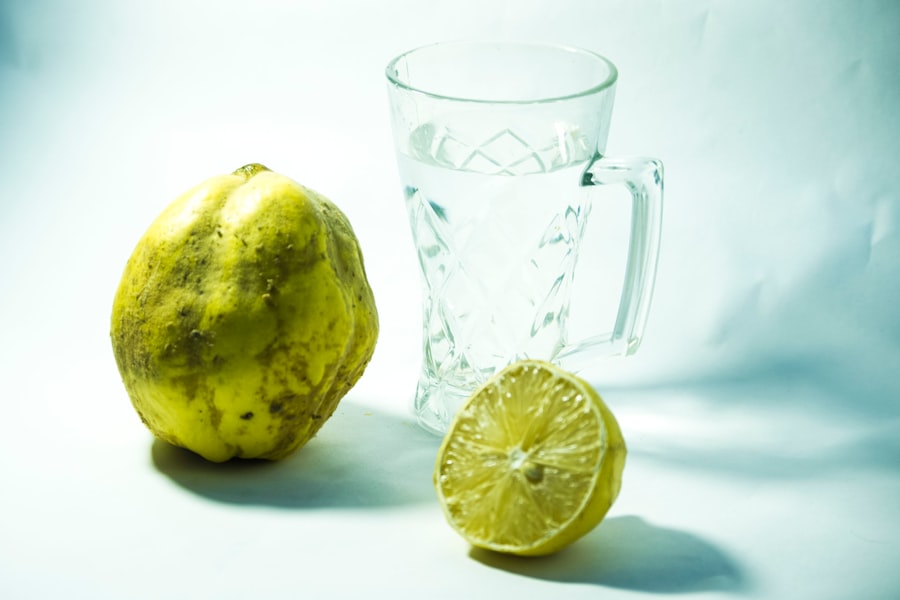Non-Alcoholic Fatty Liver Disease (NAFLD) is a condition that has garnered increasing attention in recent years, primarily due to its rising prevalence and potential health implications. As you may know, NAFLD is characterized by the accumulation of fat in the liver of individuals who consume little to no alcohol. This condition can range from simple steatosis, where fat builds up without causing inflammation, to non-alcoholic steatohepatitis (NASH), which involves inflammation and can lead to more severe liver damage, including cirrhosis and liver cancer.
Understanding the risk factors and dietary influences on NAFLD is crucial for prevention and management. The lifestyle choices you make, particularly regarding your diet, play a significant role in the development and progression of NAFLD. Research indicates that certain foods and dietary patterns can exacerbate liver fat accumulation and inflammation.
By being aware of these dietary pitfalls, you can take proactive steps to protect your liver health. This article will explore various food categories that are linked to the exacerbation of NAFLD, providing you with insights into how your eating habits can impact your liver.
Key Takeaways
- Non Alcoholic Fatty Liver Disease (NAFLD) is a condition where excess fat is stored in the liver, not caused by alcohol consumption.
- Sugary foods and beverages can contribute to NAFLD due to their high fructose content, which can lead to fat accumulation in the liver.
- Processed foods high in trans fats, such as fried and baked goods, can also contribute to NAFLD by increasing liver inflammation and insulin resistance.
- High-fructose corn syrup, commonly found in sweetened beverages and processed foods, can contribute to NAFLD by promoting fat accumulation in the liver.
- Red meat and processed meats, as well as excessive consumption of dairy products, can also contribute to NAFLD due to their high saturated fat content.
Sugary Foods and Beverages
One of the most significant contributors to the development of NAFLD is the consumption of sugary foods and beverages. When you indulge in high-sugar items, such as candies, pastries, and sweetened drinks, your body processes these sugars into fat, which can accumulate in the liver.
Moreover, sugary beverages like sodas and energy drinks are particularly insidious. They provide a high number of calories without any nutritional benefits, leading to weight gain and metabolic disturbances. If you find yourself frequently reaching for these sugary options, it may be time to reconsider your choices.
Opting for water or unsweetened beverages can significantly reduce your sugar intake and help maintain a healthier liver.
Processed Foods High in Trans Fats

Processed foods often contain trans fats, which are known to have detrimental effects on your health. These unhealthy fats are commonly found in margarine, baked goods, and many snack foods. When you consume trans fats, they not only raise your bad cholesterol levels but also contribute to inflammation and fat accumulation in the liver.
This makes them particularly harmful for individuals at risk of NAFLD. Incorporating more whole foods into your diet can help you avoid trans fats. Fresh fruits, vegetables, whole grains, and lean proteins are excellent alternatives that support liver health.
By reading food labels carefully and steering clear of products that list partially hydrogenated oils, you can make informed choices that benefit both your overall health and your liver.
High-Fructose Corn Syrup
| Metrics | Data |
|---|---|
| Calories per serving | 45 |
| Sugar content | 14g |
| Common uses | Soda, processed foods, baked goods |
| Health concerns | Linked to obesity, diabetes, and heart disease |
High-fructose corn syrup (HFCS) is another ingredient that has come under scrutiny for its role in the development of NAFLD. This sweetener is commonly found in many processed foods and sugary drinks. When you consume HFCS, it is metabolized differently than regular sugar; it is more readily converted into fat by the liver.
This process can lead to increased fat accumulation and contribute to insulin resistance, further exacerbating the risk of NAFLD. To protect your liver from the harmful effects of HFCS, it’s essential to be vigilant about your food choices. Many processed snacks and beverages contain this sweetener, so opting for whole foods or products with natural sweeteners can be beneficial.
By reducing your intake of HFCS-laden products, you can help mitigate the risk of developing fatty liver disease.
Red Meat and Processed Meats
The consumption of red meat and processed meats has been linked to various health issues, including NAFLD. These meats are often high in saturated fats and can contribute to inflammation in the body. When you consume these types of meats regularly, you may increase your risk of developing fatty liver disease due to their impact on liver function and fat metabolism.
If you enjoy meat as part of your diet, consider moderating your intake of red and processed meats while incorporating leaner protein sources such as poultry, fish, or plant-based proteins. These alternatives not only provide essential nutrients but also support better liver health. By making conscious choices about the types of protein you consume, you can significantly reduce your risk of NAFLD.
Salt and High-Sodium Foods

High sodium intake is another dietary factor that can negatively impact liver health. Processed foods often contain excessive amounts of salt as a preservative or flavor enhancer. When you consume too much sodium, it can lead to fluid retention and increased blood pressure, which may indirectly affect liver function over time.
To promote better liver health, aim to limit your intake of high-sodium foods such as canned soups, frozen meals, and snack foods. Instead, focus on fresh ingredients and herbs for flavoring your meals. By reducing your sodium intake, you not only support your liver but also improve your overall cardiovascular health.
Alcohol
While NAFLD is defined by the absence of significant alcohol consumption, it’s important to recognize that alcohol can still have a detrimental effect on liver health. Even moderate alcohol consumption can exacerbate existing liver conditions or contribute to the progression of NAFLD into more severe forms like NASH. If you are at risk for fatty liver disease or already diagnosed with it, it may be wise to limit or eliminate alcohol from your diet altogether.
Understanding the impact of alcohol on your liver is crucial for making informed decisions about your health. If you enjoy social drinking or have a habit of consuming alcohol regularly, consider discussing this with a healthcare professional who can provide personalized advice based on your individual circumstances.
Refined Grains and White Bread
Refined grains and white bread are staples in many diets but can be detrimental to liver health when consumed excessively. These foods have been stripped of their fiber and nutrients during processing, leading to rapid spikes in blood sugar levels. When you consume refined grains frequently, it can contribute to insulin resistance and fat accumulation in the liver.
To promote better liver health, consider replacing refined grains with whole grains such as brown rice, quinoa, or whole wheat bread. These alternatives are not only more nutritious but also help regulate blood sugar levels and support overall metabolic health. By making this simple switch in your diet, you can significantly reduce your risk of developing NAFLD.
Saturated and Trans Fats
Saturated fats are commonly found in animal products such as butter, cheese, and fatty cuts of meat. While they are not as harmful as trans fats, excessive consumption can still contribute to fat accumulation in the liver. When you consume high amounts of saturated fats without balancing them with healthier fats from sources like avocados or nuts, you may increase your risk for NAFLD.
To maintain a healthy liver, focus on incorporating unsaturated fats into your diet while limiting saturated fats. Cooking with olive oil instead of butter or choosing fatty fish rich in omega-3 fatty acids can provide beneficial nutrients while supporting liver function. By being mindful of the types of fats you consume, you can take significant steps toward protecting your liver health.
Fast Food and Fried Foods
Fast food and fried foods are notorious for being high in unhealthy fats, sugars, and sodium—all factors that contribute to NAFLD. When you indulge in these types of foods regularly, you may find yourself consuming excessive calories without any nutritional value. This not only leads to weight gain but also increases the likelihood of developing fatty liver disease.
If fast food is a regular part of your diet due to convenience or habit, consider exploring healthier alternatives or preparing meals at home using fresh ingredients. Cooking methods such as baking or grilling instead of frying can also help reduce unhealthy fat intake while still allowing you to enjoy delicious meals. By making these changes, you can significantly improve your dietary habits and support better liver health.
Excessive Consumption of Dairy Products
While dairy products can be a source of essential nutrients like calcium and protein, excessive consumption may pose risks for individuals at risk for NAFLD. Full-fat dairy products contain saturated fats that can contribute to fat accumulation in the liver when consumed in large quantities. If you find yourself relying heavily on dairy products in your diet, it may be time to reassess your intake.
Opting for low-fat or non-fat dairy alternatives can help mitigate some risks associated with high saturated fat consumption while still providing necessary nutrients. Additionally, incorporating plant-based sources of calcium such as leafy greens or fortified plant milks can diversify your diet while supporting overall health. By being mindful of your dairy consumption, you can take proactive steps toward maintaining a healthy liver.
In conclusion, understanding the dietary factors that contribute to Non-Alcoholic Fatty Liver Disease is essential for anyone looking to protect their liver health. By making informed choices about what you eat—such as reducing sugary foods and beverages, avoiding processed items high in trans fats, limiting red meat consumption, and being cautious with alcohol—you can significantly lower your risk for this condition. Embracing a balanced diet rich in whole foods will not only benefit your liver but also enhance your overall well-being.
Foods high in saturated fats, refined sugars, and processed ingredients can exacerbate the condition. For more detailed information on dietary recommendations and foods to avoid, you can explore this related article on
